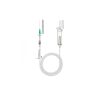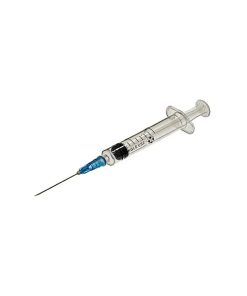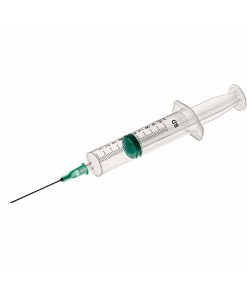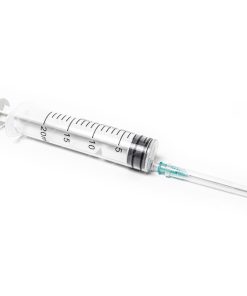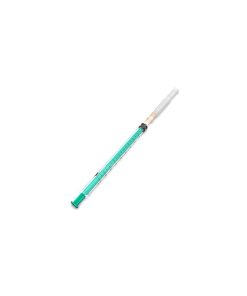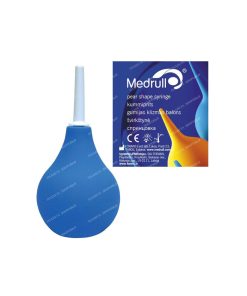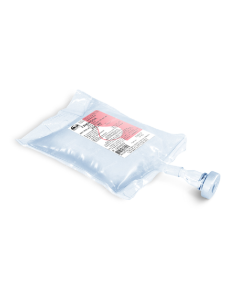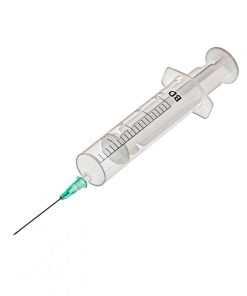Sodium chloride injection isotonic 9mg/ml in ampoules 5ml №10
$19.00
Sodium Chloride Injection Isotonic 9mg/ml: A Comprehensive Guide
Looking for a reliable and safe saline solution for intravenous administration? Look no further than Sodium Chloride Injection Isotonic 9mg/ml, a sterile and ready-to-use solution designed for replenishing fluids and electrolytes in a variety of medical situations.
This comprehensive guide will provide you with all the essential information you need, including:
- Uses and indications
- Dosage and administration
- Precautions and contraindications
- Potential side effects
- Drug interactions
- Storage and handling
What is Sodium Chloride Injection Isotonic 9mg/ml?
Sodium Chloride Injection Isotonic 9mg/ml is a clear, colorless, sterile solution for intravenous infusion containing 0.9% sodium chloride. This isotonic solution is designed to mimic the electrolyte composition of human plasma, making it ideal for replacing lost fluids and electrolytes.
Key Benefits:
- Plasma-isotonic: Effectively replenishes fluids and electrolytes lost due to various conditions.
- Detoxifying: Helps flush out toxins and waste products from the body.
- Hydrating: Restores hydration levels, especially in cases of dehydration.
- Normalizes acid-base balance: Helps maintain proper pH levels in the body.
When is Sodium Chloride Injection Isotonic 9mg/ml Used?
This versatile solution is used for a wide range of indications, including:
- Fluid replacement: Replenishes fluids lost due to dehydration, blood loss, or surgery.
- Hypochloremic alkalosis: Corrects an imbalance in blood chloride levels.
- Hyponatremia with dehydration: Addresses low sodium levels associated with dehydration.
- Intoxication: Helps flush out toxins from the body.
- Dissolving and diluting parenteral drugs: Used as a solvent for other medications administered intravenously.
- Wound irrigation: Cleanses wounds and promotes healing.
- Conjunctival irrigation: Cleanses the eyes in case of irritation or infection.
- Abdominal and pleural cavity irrigation: Used to flush out fluids or infections.
- Vaginal and bladder irrigation: Helps cleanse and irrigate these areas.
- Moistening dressings: Provides a moist environment for wound healing.
Dosage and Administration:
Important Note: Dosage and administration should always be determined by a qualified healthcare professional based on the individual patient’s needs and condition.
- Intravenous administration (drip): The dose, infusion rate, and duration of use are tailored to the specific indication, age, body weight, patient condition, and concurrent therapies.
- Typical dose: 1000 ml/day as a continuous intravenous drip infusion at a rate of up to 180 drops/minute. Higher doses may be administered in cases of significant fluid loss or severe intoxication.
- Children: For children with severe dehydration, a starting dose of 20-30 mg/kg may be administered, followed by adjustments based on laboratory parameters.
- Pre-administration: Solution should be warmed to 36-38°C before administration.
- Monitoring: Regular monitoring of plasma electrolytes, especially sodium, is essential during prolonged administration of large doses.
Precautions and Contraindications:
Caution is advised when using this solution in:
- Renal insufficiency: Patients with impaired kidney function may experience sodium retention.
- Heart failure: Use with extreme caution in patients with severe heart failure, as fluid overload can exacerbate symptoms.
- Hypersensitivity reactions: If any allergic reactions occur, stop the infusion immediately and administer appropriate treatment.
Contraindications:
Sodium Chloride Injection Isotonic 9mg/ml is contraindicated in the following conditions:
- Circulatory disorders: Conditions that could lead to cerebral or pulmonary edema.
- Acidosis: Acidic blood conditions.
- Hyperchloremia: High blood chloride levels.
- Hypokalemia: Low blood potassium levels.
- Hypoglycemia: Low blood sugar levels.
- Hypernatremia: High blood sodium levels.
- Extracellular hyperhydration: Excessive fluid retention in the body.
- Severe heart failure: With symptoms of congestion in the small circle, anasarca, and other manifestations of extracellular hyperhydration.
- Cerebral and pulmonary edema: Swelling of the brain or lungs.
- Acute LV insufficiency: Failure of the left ventricle of the heart.
- Concomitant administration of large doses of corticosteroids: Use with caution, as it can increase the risk of hypernatremia, hypervolemia, and peripheral edema.
Potential Side Effects:
While generally well-tolerated, potential side effects can occur with Sodium Chloride Injection Isotonic 9mg/ml, especially with prolonged use or high doses. These may include:
- Circulatory system: Acidosis, hyperhydration, hypokalemia.
- Immune system: Hypersensitivity reactions or infusion reactions.
- General disorders and injection site: Reactions at the injection site, such as erythema, hemorrhage/hematoma, burning sensation, urticaria, thrombosis, or phlebitis.
- Others: Fever, infections at the injection site (if aseptic techniques are not followed).
Drug Interactions:
Sodium Chloride Injection Isotonic 9mg/ml can be mixed with other hydrophilic drugs. However, compatibility should be checked visually before administration. Consult a healthcare professional for information on specific drug interactions.
Storage and Handling:
- Storage: Store at a temperature not exceeding 25°C.
- Protect from light: Keep the solution away from direct sunlight.
- Keep out of reach of children: Store the solution in a safe place where children cannot access it.
- Use a clear solution: Only use a solution that is clear and free of visible particles.
- Discard unused solution: Do not reuse or store any leftover solution.
- Aseptic techniques: Administer the solution using sterile equipment and follow aseptic techniques to prevent contamination.
Sodium Chloride Injection Isotonic 9mg/ml is a vital component of fluid management in various medical settings. Its effectiveness and safety, coupled with its versatility, make it a valuable resource for healthcare professionals worldwide.
This guide provides a comprehensive overview of Sodium Chloride Injection Isotonic 9mg/ml, but it is not a substitute for professional medical advice. Always consult a healthcare professional for diagnosis and treatment.
| INN | SODIUM CHLORIDE |
|---|---|
| The code | 3 920 |
| Barcode | 4 810 201 000 084 |
| Dosage | 9mg/ml 5ml |
| Active substance | Sodium chloride |
| Manufacturer | Borisovsky ZMP, Belarus |
Related products
Syringes/Infusion Sets
Syringe erased. one time injectable 2.0ml with 23G x 1 1/4″ needle (0.6mm x 30mm)
Syringes/Infusion Sets
Syringe Avanti Medical three-component single use sterile with insulin needle 1.0 ml
 Free worldwide shipping on orders $99+
Free worldwide shipping on orders $99+  US: temporary delays — postal services aligning new import rules,
US: temporary delays — postal services aligning new import rules,  EU: 1–2 weeks,
EU: 1–2 weeks,  Worldwide: 1–4 weeks
Worldwide: 1–4 weeks 


